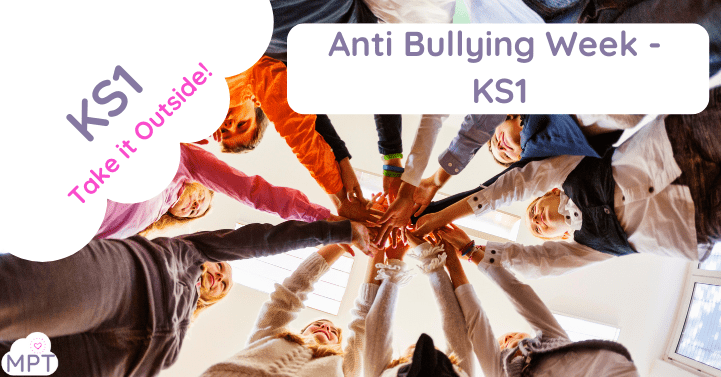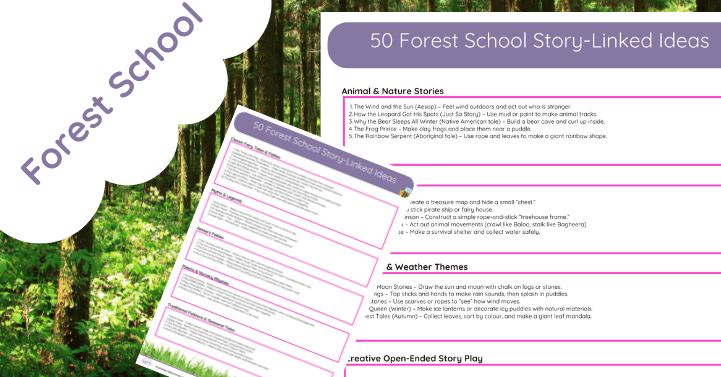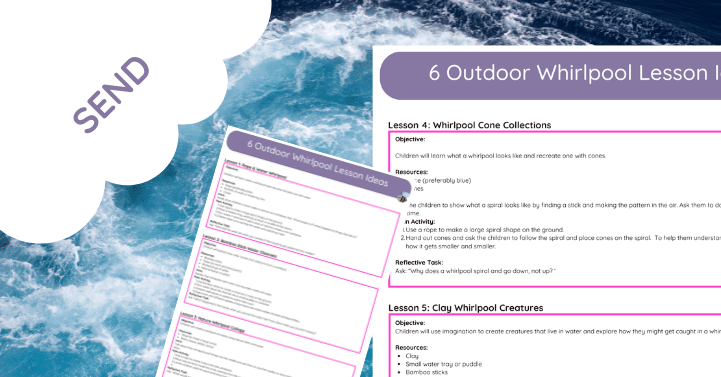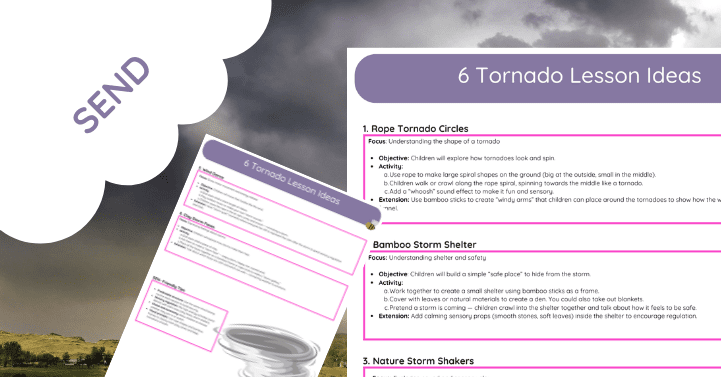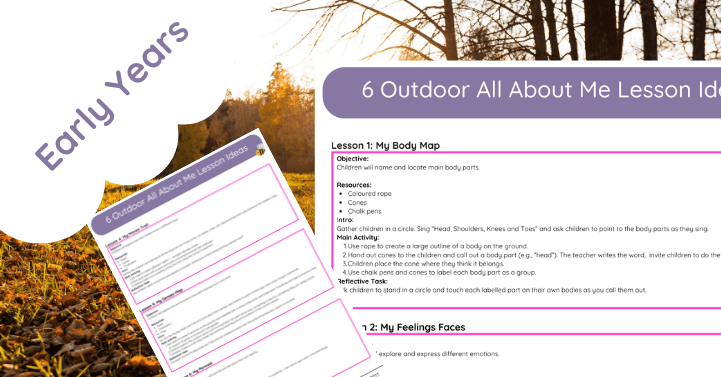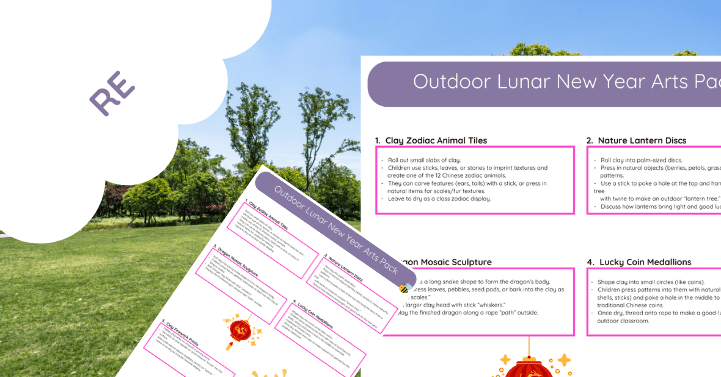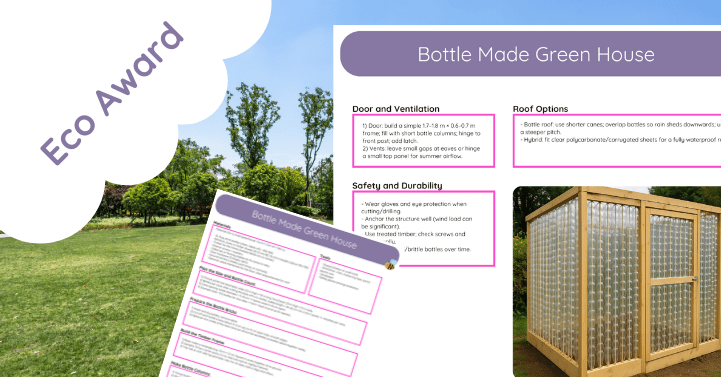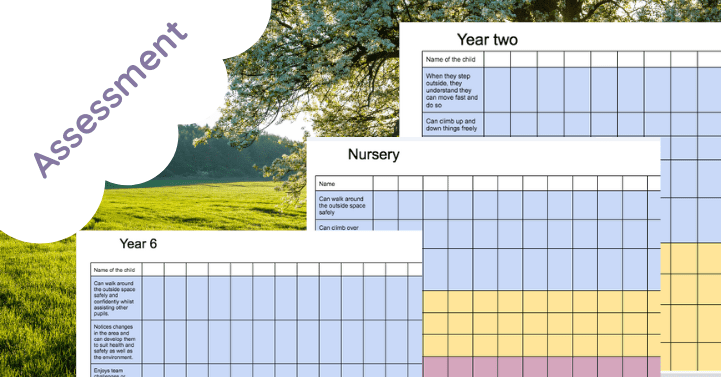Anti-Bullying Week KS1
Our Anti-Bullying Week Ideas Pack for KS1 is designed to support young learners in understanding and practising kindness, empathy, and respect through engaging in outdoor and hands-on activities. This pack offers practical, age-appropriate ideas for teaching anti-bullying concepts in a fun, interactive, and memorable way. Each activity is crafted to foster teamwork, emotional awareness, and positive interactions, empowering children to create an inclusive and supportive environment.
What’s Inside:
- Kindness and Empathy Activities: Thoughtful activities like the “Friendship Rock Garden” and “Empathy Circle” help children express kindness and understand the feelings of others, promoting a compassionate classroom culture.
- Teamwork and Cooperation Challenges: Activities like the “Friendship Obstacle Course” encourage children to work together, support one another, and celebrate each other’s successes, reinforcing the importance of friendship.
- Self-Expression and Positive Communication: Exercises such as the “Anti-Bullying Pledge Tree” allow children to commit to kindness and discuss the importance of standing up for each other.
- Creative Nature-Based Projects: Outdoor activities like the “Kindness Scavenger Hunt” foster creativity and allow children to explore anti-bullying themes in an engaging and hands-on way.
- Easy-to-Implement and Flexible: Each activity requires minimal setup and uses simple materials, making it ideal for outdoor or classroom use. The pack can be adapted for various group sizes and schedules.
Why Choose This Pack?
Our Anti-Bullying Week Ideas Pack for KS1 provides educators with valuable tools to teach empathy, respect, and inclusion. By focusing on outdoor, nature-based activities, this resource promotes social-emotional learning in a unique, interactive setting that children will enjoy. Perfect for Anti-Bullying Week or year-round reinforcement of positive social skills, this pack encourages children to build a strong foundation for kindness and respect in all their relationships.
The Importance of Taking Anti-Bullying Week Outdoors: Building Empathy and Kindness through Nature
Anti-Bullying Week is a powerful time to focus on teaching children about kindness, empathy, and respect. Research shows that nature can play a significant role in helping children connect with these values, offering a peaceful environment that promotes social-emotional learning, mindfulness, and self-awareness. When we take anti-bullying activities outdoors, children can engage in hands-on experiences that deepen their understanding of kindness, respect, and inclusion.
Let’s explore why outdoor, nature-based learning is so effective for Anti-Bullying Week and some ideas for meaningful activities that support positive social interactions.
Why Take Anti-Bullying Week Outdoors?
1. Nature Reduces Stress and Promotes Empathy
Spending time in nature has been shown to reduce stress, which helps children feel calmer and more open to learning. The Mental Health Foundation highlights that nature reduces anxiety and promotes relaxation, creating an ideal setting for discussing and understanding emotions. When children feel relaxed, they’re more likely to empathize with others and engage in supportive behaviours.
2. Outdoor Learning Enhances Emotional Intelligence
Teaching children about emotions in nature provides a calming, sensory-rich environment that makes it easier for them to recognize and process their feelings. According to the Greater Good Science Center at UC Berkeley, nature helps children connect with their emotions and develop emotional intelligence, a key component in understanding empathy and kindness.
3. Nature Inspires Mindfulness
Nature encourages mindfulness, which helps children focus on the present moment. This focus can be especially helpful for understanding emotions and how their actions impact others. Mindful Schools explains that mindfulness supports self-awareness, a vital skill in recognizing how our actions affect those around us. Teaching mindfulness outdoors during Anti-Bullying Week gives children tools for managing emotions and building positive relationships.
4. Physical Activity in Nature Encourages Teamwork
Many nature-based activities involve movement, which encourages children to work together actively and cooperatively. Play England emphasizes that outdoor play helps children learn social skills and teamwork, making discussing the importance of kindness and respect easier. By working together on outdoor challenges, children experience the value of supporting each other.
5. Outdoor Settings Promote Positive Communication
Being in nature has promoted open communication, making it easier for children to share their thoughts and feelings. The Nature Conservancy shares that outdoor spending helps children feel more connected and comfortable communicating with peers. Anti-Bullying Week provides an opportunity to practice positive communication, listening, and support, essential for respectful relationships.
Outdoor Anti-Bullying Activities to Build Kindness and Empathy
Here are some hands-on, outdoor activities that encourage children to connect and with nature, building skills that support anti-bullying values.
1. Kindness Nature Walk
A Kindness Nature Walk allows children to explore their surroundings while thinking about showing kindness to each other and the environment. Children can look for natural items that symbolize positive qualities like strength, gentleness, and beauty and discuss how these qualities can also be found in people.
- Learning Benefits: Builds empathy, communication, and respect.
- Additional Resource: National Trust provides tips on incorporating nature walks that promote mindfulness and emotional connection.
2. Empathy Circle with Nature Props
Encourage children to sit in a circle outdoors and take turns sharing a personal story or a time when they felt strong emotions. Using natural props like stones or leaves as “talking objects” can make the experience more engaging and help children feel connected.
- Learning Benefits: Promotes active listening, empathy, and emotional awareness.
- Additional Resource: Action for Children offers resources on building emotional literacy in outdoor settings.
3. Friendship Scavenger Hunt
Organize a scavenger hunt where children work in pairs or groups to find items in nature that represent friendship and positive qualities, such as “something that makes you smile” or “something strong.” Afterwards, they can discuss how these qualities are important in friendships and anti-bullying behaviour.
- Learning Benefits: Encourages teamwork, cooperation, and respect.
- Additional Resource: Woodland Trust Nature Detectives has downloadable scavenger hunts that can be adapted for friendship themes.
4. Anti-Bullying Pledge Tree
Designate a tree as the “Pledge Tree” where children can tie leaves or biodegradable ribbons with written or drawn pledges to promote kindness, respect, and inclusion. This visual display reinforces the importance of anti-bullying commitments.
- Learning Benefits: Teaches responsibility, personal commitment, and community.
- Additional Resource: Anti-Bullying Alliance offers ideas for anti-bullying pledges and activities.
5. Feelings Forest Walk
A forest walk provides children with a sensory-rich environment where they can explore their emotions in a calming setting. Encourage them to touch leaves, listen to birds, and take deep breaths, helping them identify and talk about their feelings as they connect with nature.
- Learning Benefits: Builds emotional awareness and self-regulation skills.
- Additional Resource: The MindUp Foundation provides resources on mindfulness and emotional awareness in nature.
6. Helping Hands Obstacle Course
Set up a simple obstacle course using natural materials, encouraging children to support each other through each challenge. This activity helps children practice teamwork and recognize the importance of encouraging their peers.
- Learning Benefits: Fosters teamwork, empathy, and cooperation.
- Additional Resource: Learning Through Landscapes shares outdoor obstacle course ideas for building teamwork and social skills.
7. Mindfulness Nature Mandalas
Encourage children to create mandalas using natural materials like stones, leaves, and twigs. As they build their mandalas, children can think about peaceful and kind thoughts, focusing on the calming activity to practice mindfulness.
- Learning Benefits: Promotes self-regulation, focus, and positive emotions.
- Additional Resource: Natural Resources Wales offers ideas on creating nature mandalas to support mindfulness and emotional well-being.
8. Kindness Rock Painting
Children can paint kind messages or pictures on small rocks and place them around the playground or nature area as reminders to be kind and inclusive. The messages serve as a visual reminder of their anti-bullying commitment.
- Learning Benefits: Encourages creative expression and reinforces positive messages.
- Additional Resource: Outdoor Classroom Day provides resources on outdoor kindness activities for children.
9. Friendship Circle Time
Invite children to sit together using a circle of logs or stones and discuss what it means to be a good friend. They can share examples of kindness they’ve experienced or given, creating a shared sense of empathy and understanding.
- Learning Benefits: Reinforces kindness, listening skills, and respect.
- Additional Resource: KidsMatter Australia provides tools for promoting friendship and social-emotional skills.


